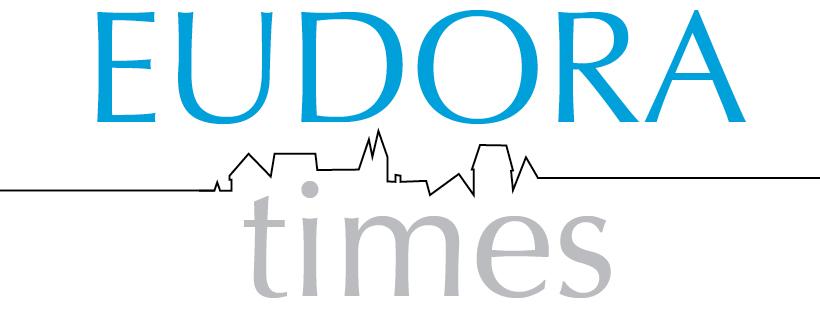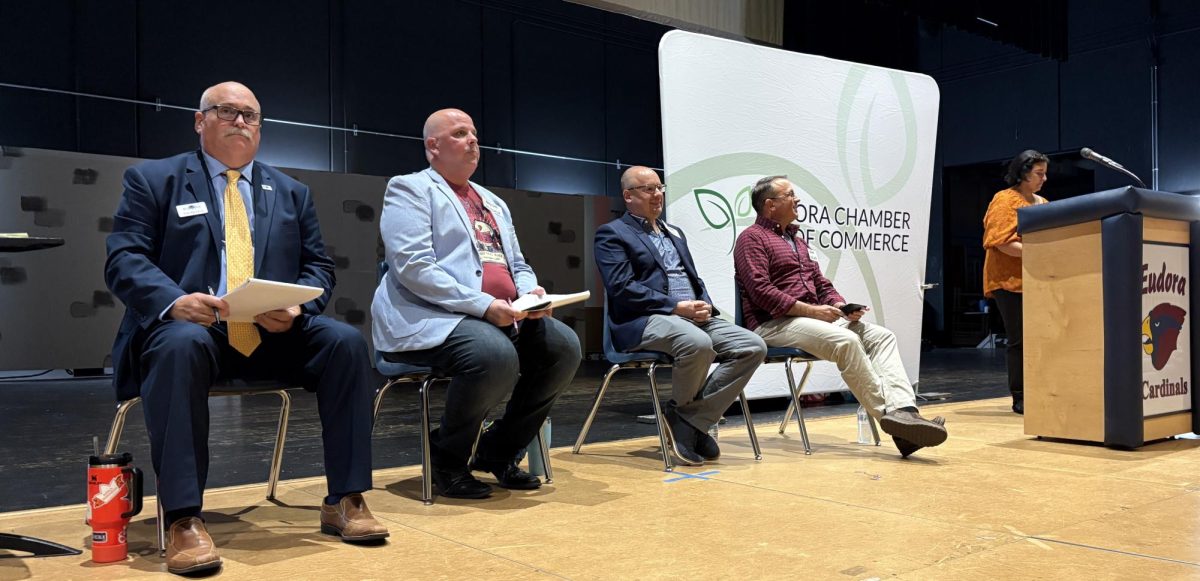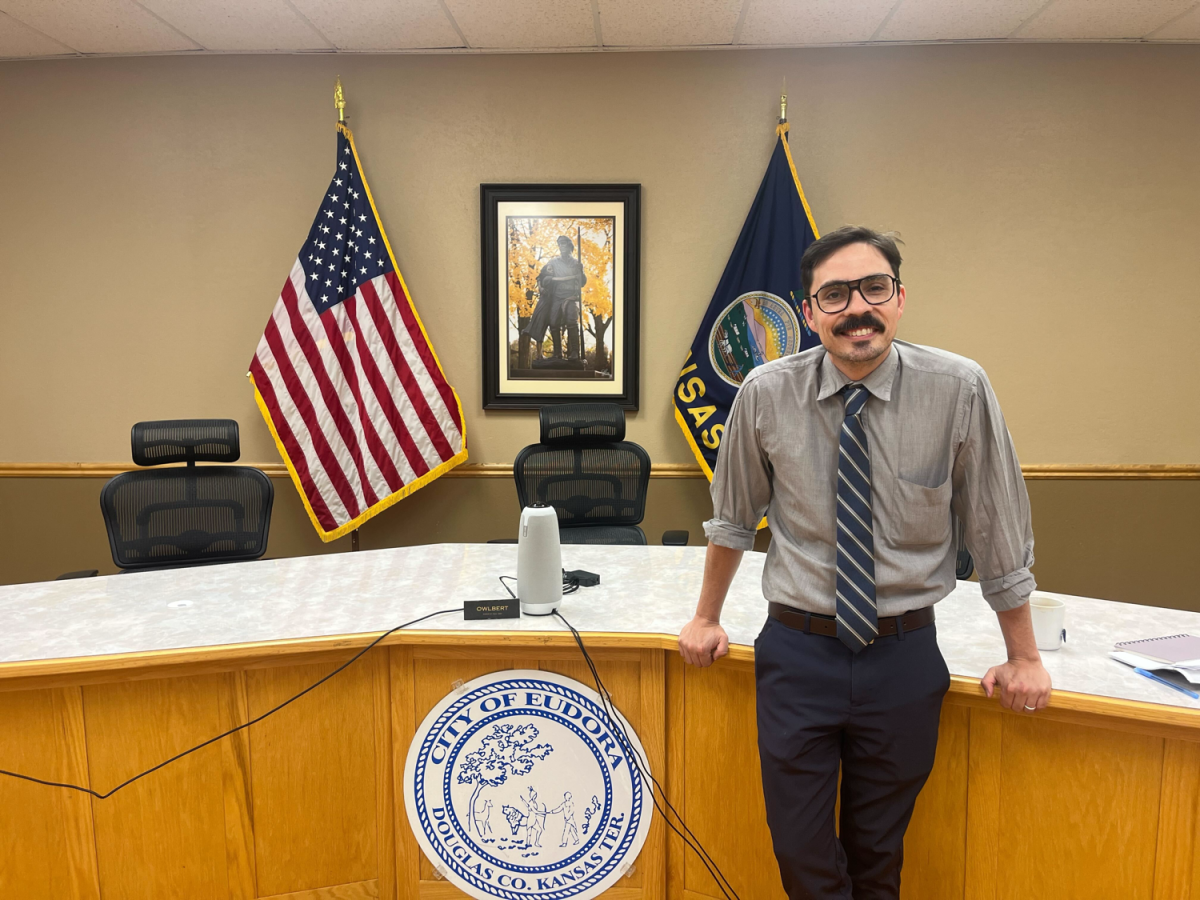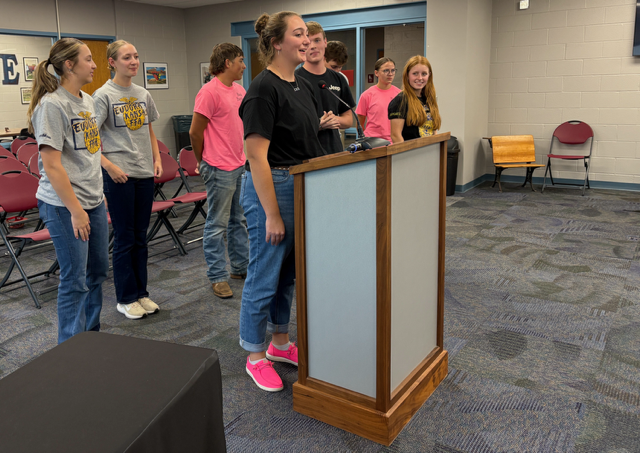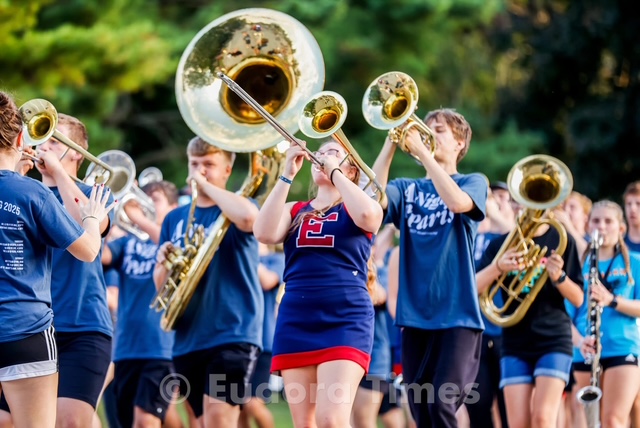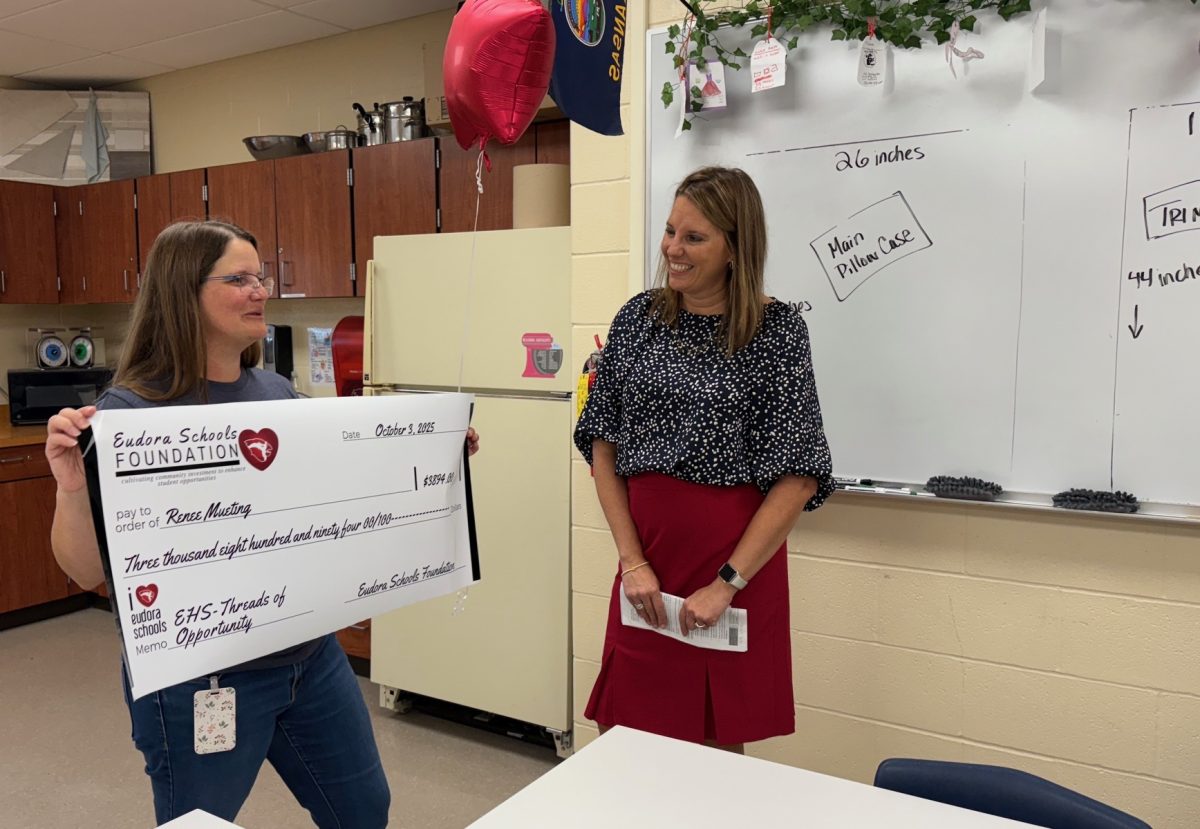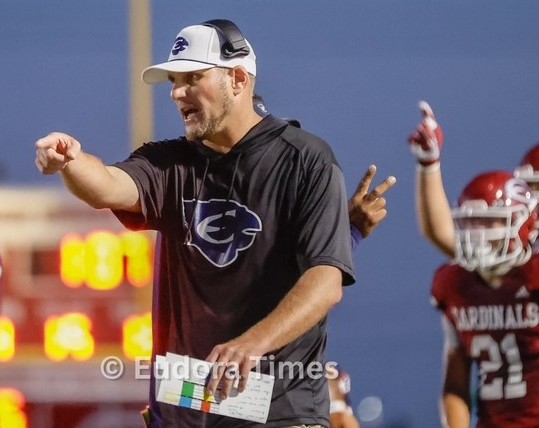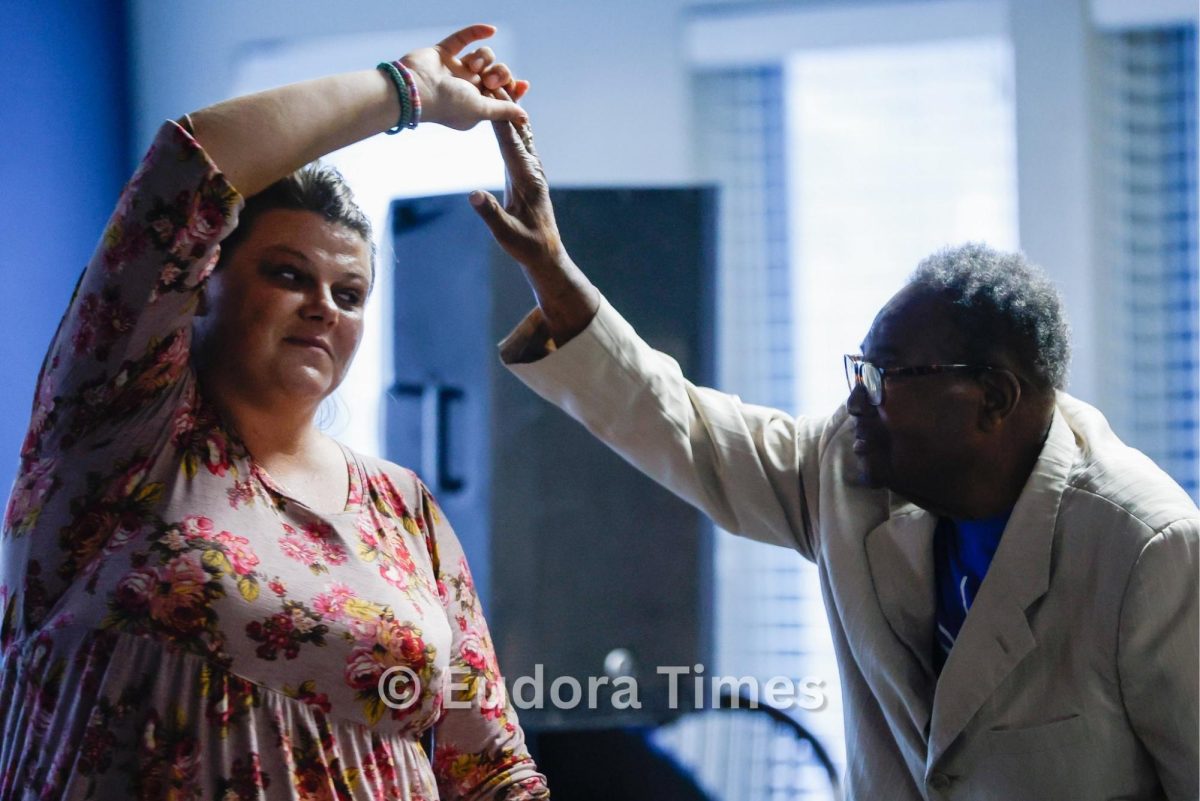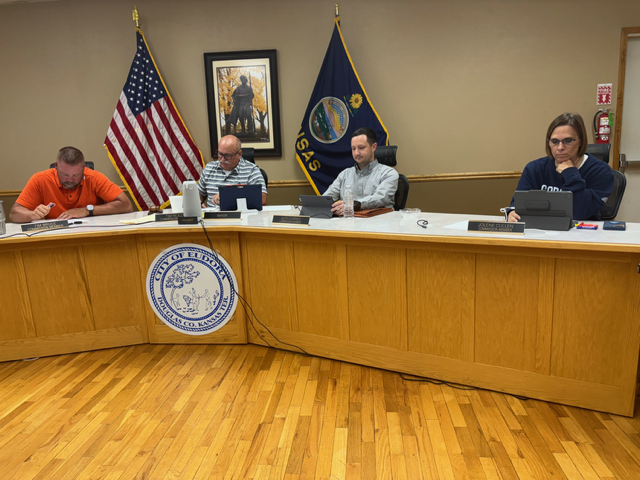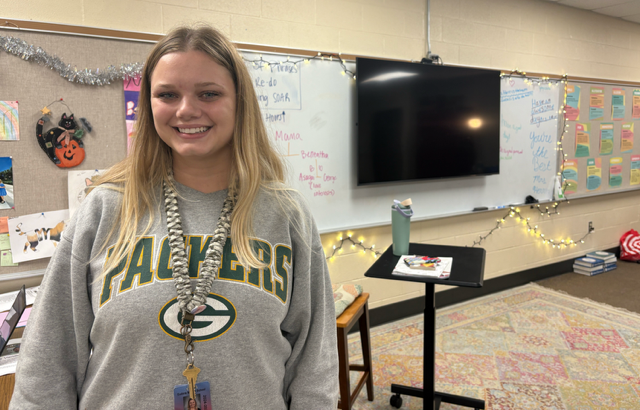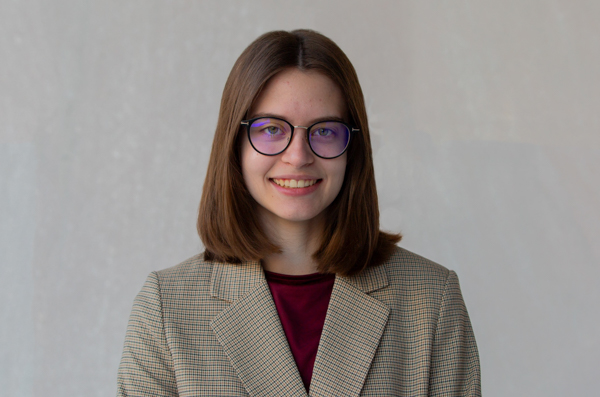The school district is trying to recruit nonresident students to the district to increase enrollment and erase disparities between high school and kindergarten class sizes.
During Thursday’s board meeting, Superintendent Stu Moeckel said the district will graduate 140 students this year, and the odds that the district is “going to bring 140 kindergartners in are not going to happen.”
Moeckel said this is the second year the district has had nonresident enrollment. He said the first year it started, the district had 61 applicants. He said this year the district ended with 101 applicants, and most of them enrolled.
He said at least 10% of the student population in total are nonresident students.
“I think we are going to continue to work as a district to promote Eudora and what we offer, so that we can see that number rise,” Moeckel said.
Moeckel also said the district has buses it could send to other communities to bring in those students.
Board President Mark Chrislip said it’s interesting school districts are now developing marketing plans to bring in students.
“Whatever we can do to tell our story is going to be imperative,” Chrislip said. “I think we have a great story that would have a lot of parents want to have their kids come here.”
The school district’s overall projected enrollment has increased this year. Moeckel said the district’s total enrollment is up by 38 students.
He said the high school has more students than it ever has before at 569. The elementary school has an estimated 659 students, which is up nine from last year. However, this is down almost 200 students from the 2018-19 school year.
“There is an alarming trend,” Moeckel said.
The Early Learning Center projected enrollment is up 24 students this year, but Moeckel said it has reached its capacity.
“Right now, we’ve basically taken any 3- or 4-year-old regardless,” Moeckel said. “We’re going to start having to look at number one, ‘Do you have an IEP?’, ‘Are you at risk?’ and last but not least, ‘Are you an Eudora resident?’”
Board member Joe Hurla said he doesn’t want to limit the capacity at the Early Learning Center because he wants the district to get students early and retain them.
“I think once students come to this district and their families see this district, they don’t want to go somewhere else,” he said.
Moeckel said the money generated from the Early Learning Center goes back into funding programs for 3- to 4-year-olds at risk. However, he said “early childhood is the best investment we can make” because those students will eventually begin generating money for the district if they stay.
“If they start a Cardinal, they’ll stay a Cardinal,” Moeckel said.
Hurla said even though “it’s not financially advantageous when they’re at that point,” over time it becomes beneficial to the district.
The board also revisited discussions on a districtwide artificial intelligence policy. All the members agreed to work toward implementing a policy at the beginning of the next school year.
“We have 120-odd teachers,” Moeckel said. “I do not want 120 different classroom policies.”
Moeckel said his priorities with a policy are human involvement in decision-making, AI audits and prohibiting surveillance of students. He also said he wants to prioritize training for staff members about AI.
To achieve these goals, Moeckel wants to create an AI advisory policy comprising board members, staff, administrators and families.
Regarding the policy, board member Claire Harding said “We really need to pull it in and focus on what is happening in our schools.”
Hurla said he wants to give the committee a blank slate but also wants to incorporate some groundwork that has already been laid by other districts with more resources.
Moeckel also gave an update on the district’s budget. He said last year, the district spent $19 million, primarily on teacher salaries. Over 70% of the budget went toward payroll and benefits for employees. Other expenses included utilities, maintenance and food.
In other business, Director of School Improvement Heather Hundley gave an update on the district’s continuous improvement plan implemented last year.
Reading and math scores are up 8% since 2022, and 27 more students are working to earn college credit compared to fall 2024. This data and more can be found on the district’s metrics website.
Hundley also discussed chronic absenteeism, which is down 2.63% since 2022. Board member Heather Whalen said the district’s goal is to have 10% or less students with chronic absenteeism, which is defined as missing 10% or more of the school duration time.
In their report at the meeting, elementary school principals said they are trying to identify barriers to attendance, like transportation, to decrease chronic absenteeism at the school. Assistant Principal Jamie Grado said Principal Seth Heide has been great about calling families whose children have been absent.
The principals also gave an update on the school’s professional learning communities, which meet for 25 minutes each day and focus on rotating categories of professional development, data, IEP plans, coaching and team collaboration.
They also discussed the school’s new curriculum called “Character Strong,” which awards students and teachers for displaying positive attributes like kindness or respect.
In other business, board member Kelley Woods said 120 middle school students have signed up for Cardinal LinkUP Mentoring. She said the program still needs 20 mentors and encouraged board members to sign up.
During the meeting, Marivel Esquivel was reinstated as a Migrant Education Program recruiter. The program received its funding after months of uncertainty due to the federal funding freeze.
The Future Farmers of America club was spotlighted at the beginning of the meeting and discussed its performance in competitions, planned fundraisers, national competition in Indianapolis later this month and the upcoming “Day on the Farm” event at the elementary school, where members will show their animals.
Reach reporter Bella Waters at [email protected].
